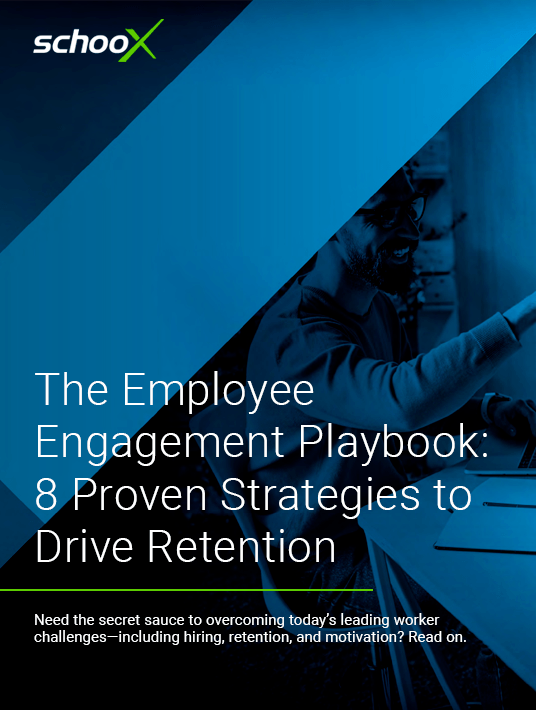Which of the Following is True About Continuous Learning
Summary: Continuous learning, also called lifelong learning, is not a new trend. But it's a trend that has picked up speed in the past couple of years as organizations place more focus on optimizing their employee learning. This is especially true in the wake of millions of workers leaving the workforce and fewer people applying for the many job openings.
Creating A Continuous Learning Culture In Your Organization
Simply stated, continuous learning is a methodology that supports ongoing learning of new skills and knowledge acquisition, in particular, of individual employees' unique talents and skills. While companies can offer continuous learning opportunities, the backbone of the concept involves employees taking the initiative to engage in new learning challenges on their own. Embracing a continuous learning culture and nurturing the unique talents of individual employees sets up organizations and workers for long-term success.
Organizations that have already implemented a continuous learning culture share many of the same traits. Companies that have not yet implemented a continuous learning culture can learn from them, as well as leverage best practice guidance for creating a company culture that nurtures individual talents.
The investment in a continuous learning culture is well worth the benefits gained, which include:
- Employees feel more empowered and valued and are more likely to stay with the organization.
- Employees perform their jobs better and with greater motivation.
- As workers continue to learn and grow, they find multiple avenues for advancement.

eBook Release
The Employee Engagement Playbook: 8 Proven Strategies To Drive Retention
Learn about proven employee engagement strategies and the technology needed to hire the best workers, retain them, and motivate them to perform at their highest capacity while loving their jobs.
What Do Continuous Learning Cultures Have in Common?
While every organization's continuous learning culture is unique to its industry, products, and values, there are three leading characteristics they have in common— each of which is critical to maintaining continuous learning success:
- Employees are encouraged and empowered to explore learning opportunities and implement creative ideas that help them expand their capabilities and advance in their career.
- Employees gain the agility to learn in ways that help organizations transform and adapt in an ever-changing world.
- Organizations gain adaptiveness and continuous improvement in every critical area of success, including processes, solutions, and products.
Tips To Build A Company Culture That Nurtures Individual Talents
The following components are hallmarks of successful continuous learning
workplace cultures.
Support Learning Experience Personalization
One key to success is aligning your learning resources with your business requirements and with employees' interests and career development needs.
Support Learning Habit Creation
Continuous learning can be viewed as a habit that workers adopt to keep gaining new knowledge and skills. Your organization can support this habit creation in several ways, including making learning easy, accessible, and meaningful. This could include sending out reminders in a daily feed, supporting worker learning collaboration, and providing goal setting and feedback.
Support Social Learning
When you think about it, most learning throughout a person's life takes place in social settings. This provides a valuable opportunity to share information, ideas, and resources among peers. Social learning should extend into the workplace with the support of an LMS's learning collaboration tools.
Support Progress Assessments
Everyone loves to know how they are progressing on goals. This is especially true in organizational learning. Employees want to know that they are making progress on their career journey, which helps them stay motivated. To facilitate this advantage, create performance goals and metrics that can be used to measure the impact of learning materials. This gives you valuable insight into tying learning goals to career progression and more.
Create A New Learning-Focused Leadership Role
Building and maintaining a continuous learning culture requires strong leadership. If you don't already have one, consider hiring a learning champion, such as a Chief Learning Officer, and a supportive team. They will be critical to transforming your organizational culture into one that supports continuous learning in a meaningful way—from course creation to assessment.
As skills gaps remain a concern across today's business world, organizations can be encouraged by the fact that workers want to learn. In fact, self-driven learning is at an all-time high. Employees are listening to podcasts, watching videos, reading blogs, attending virtual conferences, and taking online courses. Companies that recognize, encourage, and support workers' interest in learning stand to gain a considerable advantage—including reaching their goals in hiring, retention, productivity, and sales. The message is clear: harness employees' interests and goals, and guide them in a direction that matches the organization's needs by building a culture of continuous learning.
Schoox has long recognized the value of continuous learning and built intuitive and intelligent learning tools into the platform. With Schoox, learning and training teams are able to easily deliver engaging, continuous, and personalized learning and development experiences that drive business impact. As a result, they can help employees learn more, connect deeper, adapt faster, and perform better.
Conclusion
Download the eBook The Employee Engagement Playbook: 8 Proven Strategies To Drive Retention to discover how to leverage technology to hire, retain, and inspire top talent. It features insider tips to make your existing employee development program more collaborative, learner-centered, and results-driven.

Schoox
Schoox transforms learning into business growth. Our SaaS learning platform and course marketplace help companies accelerate business results by unlocking employee potential, boosting customer retention, and driving reseller revenue through learning.
Source: https://elearningindustry.com/the-key-ingredients-for-creating-a-continuous-learning-culture
0 Response to "Which of the Following is True About Continuous Learning"
Post a Comment